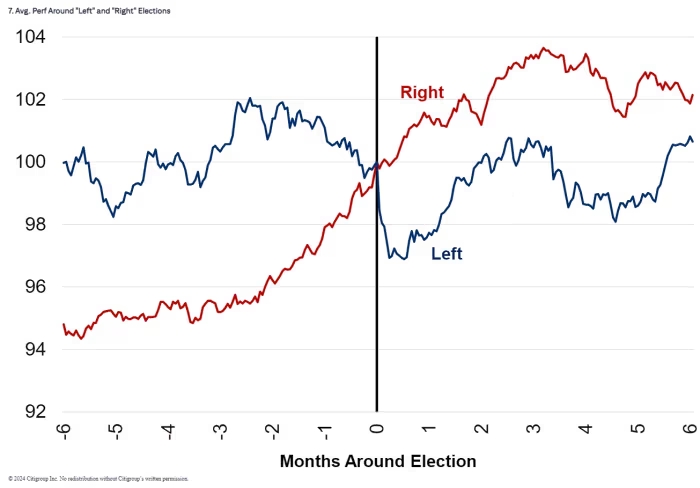The withdrawal of Ron DeSantis from the Republican presidential race underscores the potential impact of elections on financial markets, especially in a year where the U.S., India, Mexico, and likely the U.K. are gearing up for significant political events.
Citi’s strategists delved into the market repercussions of 134 elections across 17 countries, excluding periods of global market volatility like the financial crisis and the COVID-19 pandemic. Contrary to expectations, their analysis revealed that elections generally don’t wield substantial influence. According to them, developed market equities experience some volatility around election day but typically maintain a mild upward trajectory before and after the polls.
Specifically in the U.S., equity markets typically exhibit an upward trend leading into elections, with a continued ascent afterward. Sectors tied to economic cycles, in particular, tend to perform well post-election. Although volatility, as measured by the VIX, increases during election periods, it tends to subside later.
A noteworthy observation is that while markets generally favor continuity, they adapt to “change” elections where policies undergo a shift, albeit with a delay of around four to five months. Right-leaning parties are initially preferred, but after about five months, markets adjust positively to left-leaning parties, which tend to perform better after six months.

In emerging markets, equities often decline leading up to elections and then experience an upswing afterward. The markets with upcoming elections this year show mixed results. Indonesia, Taiwan, and South Africa tend to see positive trends six months post-election day, while India and Mexico show a tendency to trade somewhat lower. Emerging markets typically lean towards favoring change over continuity candidates.
Despite the prevailing political uncertainties, the S&P 500 has demonstrated resilience, recording a 1% gain this year and achieving a record high on Friday. Over the past 52 weeks, the index has posted a notable 22% increase.




